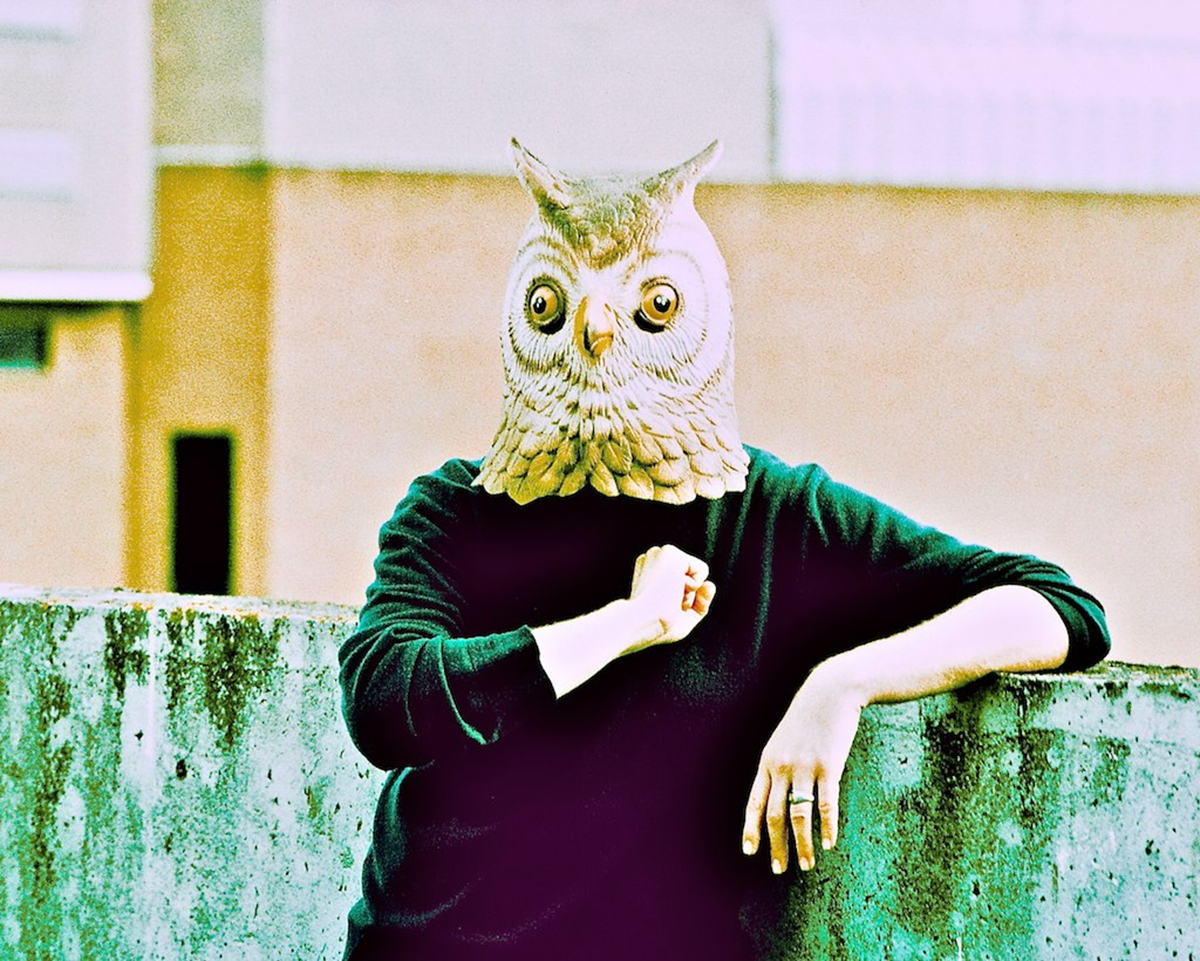"Morning people," research suggests, have an awful lot of advantages: they are happier, feel healthier, and are more proactive and more productive than their night-owl counter parts. The wide range of studies conducted into the benefits that come with being an early bird also suggest that morning people get higher grades, are more conscientious, and tend to be more optimistic and less stressed. Sayings like "the early bird catches the worm" and "early to bed, early to rise, makes a mean healthy, wealthy and wise" represented this common wisdom long before those studies were even conducted.
All that sounds nice if you are already a morning person, but does it mean you're doomed if you are a night owl, like me?

Well, it does to an extent: it's abudantly clear that the world at large is designed for people whose productivity peaks earlier in the day. Whether you're an employee, a student, a parent with kids who attend school or daycare, or a kid, society's daily rhythm will almost always require you to get up at what this night owl would call an un-Godly hour. While some of us night owls are lucky enough to have jobs that allow us to set our own daily routines or jobs that start later in the day, many aren't.
Is There Any Such Thing As A Reformed Night Owl?
Can you really, actually, change your natural circadian rhythm? As a busy, working mother of two, I have to get up much earlier than I'd like to to make sure my kids and I get everything I've planned for the day done, even though we homeschool and don't have to leave our nice warm beds quite as early as most people.
During the summer holidays, when we're not doing any school, I revert to my natural rhythm right away. While more than half of all Americans say they are most productive between 5 am (!!!) and 12 pm, my mind really works best after about 9 pm. In the absence of obligations, I revert to my default.
READ Fatal Familial Insomnia: Literally Dying To Sleep
- Cindy, stay at home mom: "On days when I'm very productive before noon, I feel much more accomplished by the time the evening rolls around. I'm not saying I'm there yet, but I try to get up an hour before the kids, do some stretches, make breakfast, have my coffee, and wake up properly. I'm quite happy to turn in early if I do this. Making sure I have that 'me' time to relax alone is really important to me."
- Svetlana, nurse: "I prefer the night shift by far, which would make me an odd duck. If I have to get up at 5 am, I feel low on energy and have a headache no matter how much coffee I drink. It never, ever gets better."
- Paul, IT consultant: "I'm alright as long as I use melatonin. I flip back immediately given the chance though."
- Jen, architect: "I have to get up early as I have an hour-long commute to work but no, I never really get used to it."
How To Become A Morning Person
With the right sleep-wake strategies, some night owls may get used to a routine in which they wake up early really well, to the point that they really don't mind any more. Others will never feel quite that positive, but they can still benefit from a few lifestyle changes that enable them to actually get out of bed when that alarm goes off.
Here are some things natural night owls can try.

Keep It Predictable
A friend of mine has a pond with fancy fish, who get fed at 6 pm. Though they obviously don't wear watches, they always appear at the surface at exactly that time. Guess what happens when the clocks change because of daylight savings time? The fish still appear at what was previously 6 pm, and they need about a week to catch on to the new rhythm. Animals have natural clocks that thrive on routines, and we're no different.
You'll find it easier to go to sleep and get up if you keep it predictable — get up at the same time every day if you are in danger of reverting to your natural sleep pattern. Yes, even during the weekends. This will prevent you from feeling like a zombie on Mondays.
Make Sure You Get Enough Sleep
If you're like me, you'll feell exhausted at dinner time if you get up early. Then, after the sluggishness has worn off, the inner night owl kicks in and you will be tempted to stay up and do things into the early hours. This tendency creates a chronic lack of sleep that will make it impossible to ever get used to your early wake-up time. Most adults need between seven and nine hours of sleep to function optimally. Make sure you get enough sleep, even if it means you have to turn in much earlier than you really want to.
Let There Be Light
Research has shown that light plays a crucial part in your ability to wake up early. Make sure natural light has the ability to pour into your bedroom in the morning, and keep the room dark at night when you're trying to go to sleep. If you live in a place where it's still light outside when you go to bed, you may want to think about investing in fancy blinds with a timer that close at night and open in the morning when you need to get up. If you live in a place where it's still dark in the morning when you get up (for part of the year), you may like to look into a so-called "light box" with bulbs that simulate natural daylight.
What Else Do You Need To Do?
When the alarm goes off, get up immediately rather than hitting the snooze button, which is a bottomless pit of temptation. Eat breakfast for energy. Do something active, like tidying the house or doing a mini-workout, before you head out. Jog to work if you can. Read the newspaper to get your brain going, or make a list of plans for the day. At night, wind down gradually, gentlty creating the right mood for going to sleep. Keep the lights down and your electronic devices out of your bedroom.
READ What Can You Do To Improve Sleep Quality?
- Photo courtesy of The James Kendall via Flickr: www.flickr.com/photos/thejameskendall/4797093039
- Photo courtesy of AlisonChaiken via Flickr: www.flickr.com/photos/99725460@N00/8015747466

